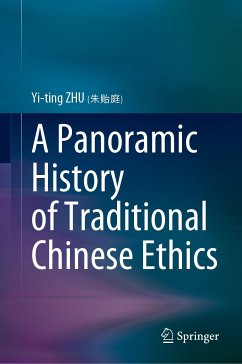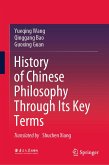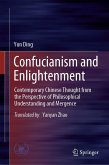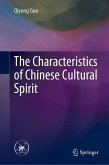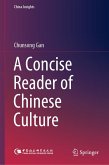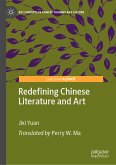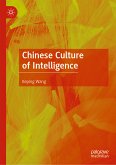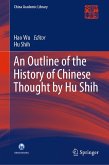This book traces the trajectory of traditional Chinese ethics from West Zhou Dynasty (1046-771 BC) through Qing Dynasty (1616-1912) and covers a myriad of Chinese philosophers who have expressed their ideas about the relationships between Heavenly Dao vs. Earthly Dao, Good vs. Evil, Morality vs. Legality, Knowledge vs. Behavior, Motive vs. Result, Righteousness vs. Profitability, Rationality vs. Animality. In this book, the readers can find Confucius's discussion on Rite and Benevolence, Lao Zi's meditation on Inaction of Great Dao, Zhuang Zi's elaboration on "Transcendental Freedom", Mohist utilitarian "Universal Love", and Mencian theory of "Primordial Good Humanity", to name just a few phenomenal figures. A compact yet elaborate, panoramic yet profound guidebook to traditional Chinese ethical thought, this book is an excellent window to showcase traditional Chinese mental and spiritual legacy.
Composed, translated, and proofread by brilliantscholars, it produces a fluent and coherent English discourse of Chinese morality and ethics, nimbly spinning together the threads of Confucianism, Taoism, Buddhism, and other ideological schools with brief references to the historical situation. Consequently, it provides English readers, especially those curious about Chinese psychology and rationality, with thought-provoking and horizon-expanding perspectives, and provides Chinese readers, especially those of philosophy and translation, with a great number of typical and characteristic quotes of archaic Chinese that have never been translated before. Ultimately, it is a fundamental threshold to learning about Chinese people, Chinese culture, Chinese morality, Chinese mentality, Chinese policy, and Chinese diplomacy.
Dieser Download kann aus rechtlichen Gründen nur mit Rechnungsadresse in A, B, BG, CY, CZ, D, DK, EW, E, FIN, F, GR, HR, H, IRL, I, LT, L, LR, M, NL, PL, P, R, S, SLO, SK ausgeliefert werden.
Es gelten unsere Allgemeinen Geschäftsbedingungen: www.buecher.de/agb
Impressum
www.buecher.de ist ein Internetauftritt der buecher.de internetstores GmbH
Geschäftsführung: Monica Sawhney | Roland Kölbl | Günter Hilger
Sitz der Gesellschaft: Batheyer Straße 115 - 117, 58099 Hagen
Postanschrift: Bürgermeister-Wegele-Str. 12, 86167 Augsburg
Amtsgericht Hagen HRB 13257
Steuernummer: 321/5800/1497
USt-IdNr: DE450055826
Bitte wählen Sie Ihr Anliegen aus.
Rechnungen
Retourenschein anfordern
Bestellstatus
Storno

